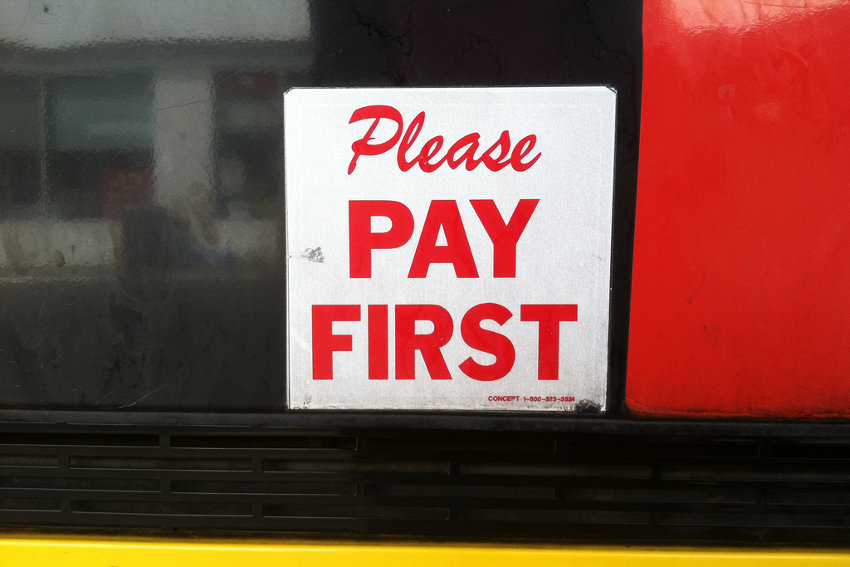If you are a business owner, falling prey to all sorts of scams could be as common as your daily legitimate transactions. The trick is to learn how to identify and smoke out the hordes of business scammers looking to fleece you and your employees.

photo credit: Jean-Etienne Minh-Duy Poirrier / Flickr
Knowing the 6 secrets of scammers will help you avoid falling for the tricks of the scammers. These are discussed below in greater detail:
1. Directory Scams
As a business owner or manager, you will get numerous messages and phone calls from prospective online directory providers. During the discussion, you will be asked to pay up for your business name and contacts appearing in the directory. For a reasonable business owner, that may sound very genuine.
But just how can you be sure you are talking to a real online directory owner? Use reverse phone lookup service to get all the caller details including the owner of the number, the location, carrier, and whether it is a cell phone or landline number.
2. Tech Support Scams
There are times when you will receive a call from an individual posing as a technician. Often, they will offer to fix a non-existent issue by gaining access to your system.
Don’t make a mistake and give them access to your system.
According to Ponemon Institute’s report, in companies the average cost of a data breach is $6.3 million. Within no time, they will hit you hard by stealing all your financial situation. Some even call pretending to be from the Global Privacy Enforcement Network, with threats to take legal action against you, if you do not give them access to your system. Train employees to flag out scammers and avoid giving out their credentials.

photo credit: Gretchen Caserotti / Flickr
3. IRS-Related Scams
Scammers know that business owners have to deal with the Internal Revenue Service from time to time. But you or your employees don’t have to fall for the tricks of the scammers. You only need to know how IRS contacts taxpayers.
Of course, the IRS’s default means of communication is via US mail. And even when they do contact you, they never ask for your social security number or credit card number via the phone.
One more thing: Another giveaway of a scammer is threats to have you arrested or sued. Anyone who asks for payment through Western Union, MoneyGram, iTunes card or other gift card is a scammer.
4. Charity Donations Scams
Fraudsters are a shameless bunch of people. They are not afraid to call or visit you to ask for a donation towards some kind of charity organization. Many of them pretend to represent organizations that support children, veterans, firefighters, and the police.
Apart from asking for credentials and identification, they should tell you what they plan to use the money for. If they claim to represent the police, give them a call to establish legitimacy. If they promise special treatment in return for a donation, then they are definitely scammers.
Where you or your employees suspect fraud from any caller soliciting for a charity donation, call the police.
5. Fraudulent Bills Scams
If you have a business that does numerous transactions, you will receive invoices, bills, and account statements of several suppliers. Of course many of these would be genuine, but be aware that some of them may be fraudulent scams.
Be careful when you receive what appears to be a refund or rebate check. Report of Association for Financial Professionals (AFP) shows that checks were the most reported type of payment fraud at 74 percent. If it includes a business address you have never dealt with, it is certainly a scam.
Before depositing or cashing such a check, first read the fine print. You don’t want to end up entering into a monthly billing agreement for products you don’t even need. Imagine your business getting into an online list you cannot possibly wriggle yourself out of.

6. Ransomware Attacks
This is one if the trickiest scams that all types businesses have fallen for. A virus is installed into your system. It encrypts all your digital files and renders them useless. If you do not pay a ransom, the files will be locked out of your access. In the US, this kind of scan is so common that over 4,000 businesses are affected on a daily basis.
Teach your employees to exercise utmost caution when opening attachments to emails or clicking in-email links. If an email is unsolicited or looks suspicious, avoid it like the plague. As a precaution, install an antivirus or firewall to prevent or root out a ransomware infection.
Conclusion
Now you know the most common business scams and how to protect your company from it. Just follow these guidelines and, as a precaution, teach your employees this simple safety rules. When everyone involved in protection – your company becomes impossible for scammers to reach!